Why 'Reagan' star Dennis Quaid is nostalgic for 'liberal Republicans'
In the fall of 1980, Dennis Quaid was 26 and had just come back from voting when he was greeted by his curious roommate.
"He asked who I voted for, and when I told him Ronald Reagan, he said, 'That's it, you're kicked out of the hippies,' " says Quaid, breaking into an ear-to-ear grin. "I turned in my hippie card right there."
And now Quaid, who says he has "always been an independent" voter, is playing the man he voted for twice and calls "my favorite president."
Quaid, 70, stars as The Gipper in "Reagan" (in theaters Friday), a biopic that spans Reagan's entire life and focuses on two of the actor-turned-politician's defining accomplishments: his enduring marriage to Nancy Reagan and his jousting with Mikhail Gorbachev that led to the end of the Cold War.
Join our Watch Party!Sign up to receive USA TODAY's movie and TV recommendations right in your inbox
Need a break? Play the USA TODAY Daily Crossword Puzzle.
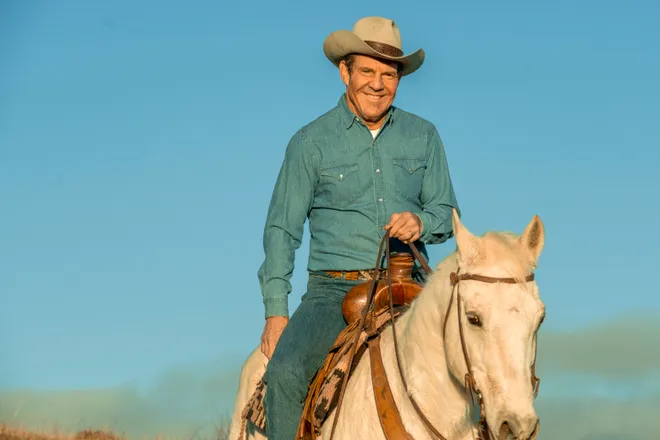
The movie leans heavily on Penelope Ann Miller's portrayal of Nancy as her husband's fierce protector and Jon Voight's turn as retired KGB agent Viktor Petrovich, who narrates the film as an old man looking back on his nation's greatest adversary.
Though "Reagan" briefly touches on the fierce antagonism Reagan's presidency generated in liberal circles, it is decidedly aimed at his fans, including select attendees at last month's Republican National Convention, who were given an early screening.
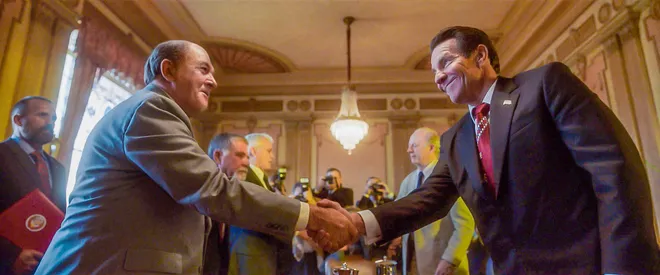
For Dennis Quaid, finding his way into the interior of Ronald Reagan meant considering his closed-off sides
But while a lifelong fan of the 40th U.S. president, Quaid was initially hesitant about taking the role of Reagan, who died in 2004 after a yearslong struggle with Alzheimer's disease.
"First of all, I didn't want to just do some kind of impersonation of him, since he's one of the most recognizable people in the world," Quaid says. "And really, it was a feeling of being unworthy. I also thought my feelings for him would cloud how I'd play him. I wanted to get past that public persona to the human being."
Once the actor warmed to the notion that he could pull off the feat, he dived into research, which ranged from long conversations with people who knew Reagan to watching countless videos online. "I had some luck with the hair, which I basically already had, plus a little dye," he says.
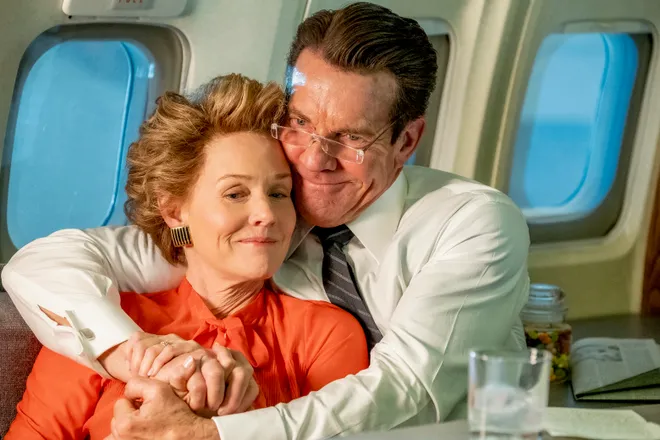
Despite Reagan's own acting background and oratorical skills − the movie re-creates his 1984 debate quip that he wouldn't exploit challenger Walter Mondale's "youth and inexperience" − Quaid says Reagan also seemed shrouded in mystery.
"Everyone I talked to said there was something impenetrable to him, something that I'm guessing even Nancy experienced," he says. "There was a wall there, maybe coming from having an alcoholic father, having to hide your deepest emotions, intimacy maybe being an issue."
The breakthrough for Quaid happened he was invited to visit Reagan's fabled ranch Rancho del Cielo, dubbed the Western White House, on 688 hilly acres outside of Santa Barbara. (The ranch was purchased in 1998 by the conservative nonprofit Young America's Foundation.)
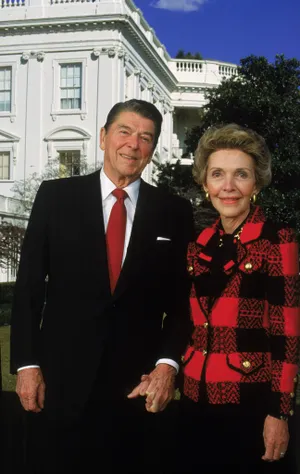
"It's not open to the public, but I got to go," he says. "You take the 101 Highway north and then exit and do about 5 miles of some of worst road in America until you get to that gate. And right then I felt I knew who this man was. He was a humble man. You can see it in all the work he did on the ranch himself, in the clothes that still hang in the closet. You can see it in the 1,100-square-foot house, in the two twin beds they zip-tied together to make one bed."
Ronald Reagan was 'everybody's dad, for better or for worse,' Dennis Quaid says
For Quaid, Reagan felt like "everybody's dad, at least to us boomers, for better or for worse. With any dad, you either idolized him or you rebelled against him. I think that's what he was like for many of us, and why he still reverberates."
Asked about today's political landscape, Quaid is tempered.
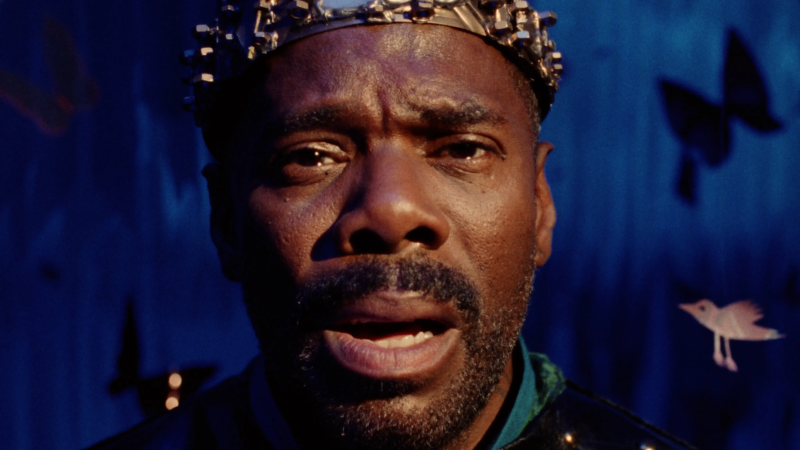
"The circumstances around that 1980 election (in which Reagan defeated incumbent Democrat Jimmy Carter) seem similar to today. People then and now were saying America was in decline, there were high interest rates, there were hostages in the Middle East. And Reagan came along and said: 'We're going this way. America's best days are ahead.' "
Asked whether the "Reagan" production was partisan, given the subject matter, Quaid shakes his head. "No, I'd say at least half our crew on the production were Democrats. And remember, Reagan was a longtime Democrat before he became a Republican."
Quaid won't comment specifically on the merits of either of today's presidential nominees, Kamala Harris and Donald Trump, but says, "America gets the president it deserves. They're a reflection of the times and the people."
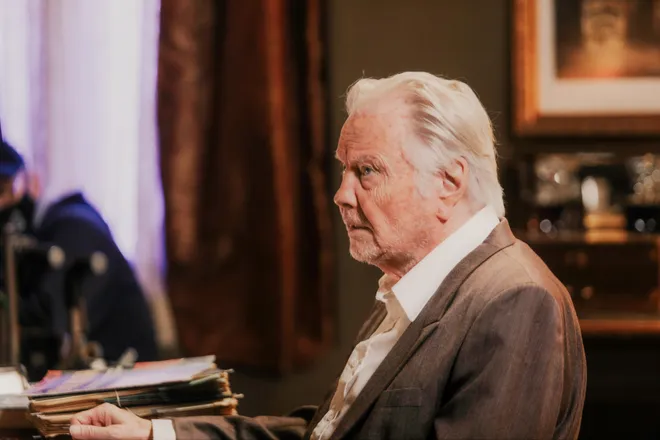
But Quaid does bemoan the rancor and sharp divisions in today's politics. "I do long for the days when you had liberal Republicans and conservative Democrats, I really do," he says. "I hope we can realize we need each other, that we can this way keep each other from going too far one way or the other."
He flashes back to a scene from "Reagan" in which the president is greeting visitors shortly after surviving an assassination attempt in 1981.
"After Nancy, the first person there to see him was Tip (O'Neill, the Democratic speaker of the House). As Reagan once said to him, 'Tip, we may be political enemies during the day, but after 6 o'clock, we're just two Irishmen having a beer."
Disclaimer: The copyright of this article belongs to the original author. Reposting this article is solely for the purpose of information dissemination and does not constitute any investment advice. If there is any infringement, please contact us immediately. We will make corrections or deletions as necessary. Thank you.







